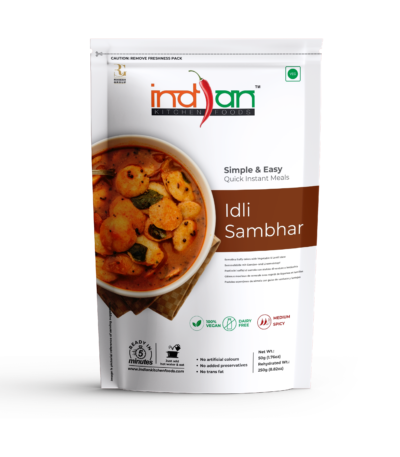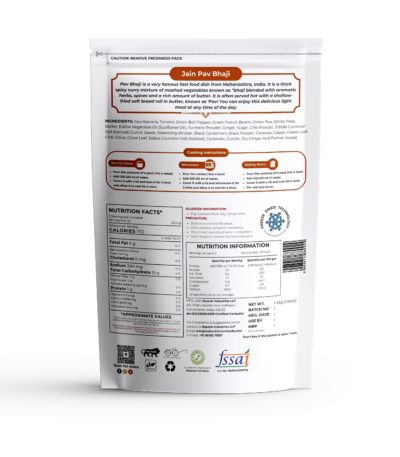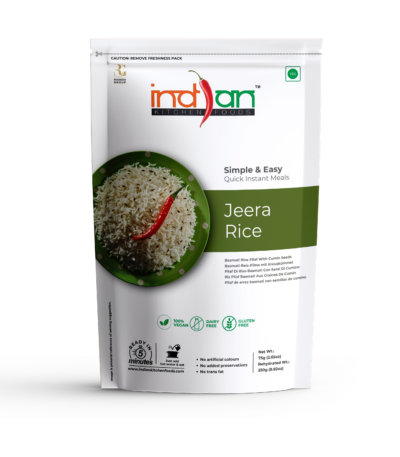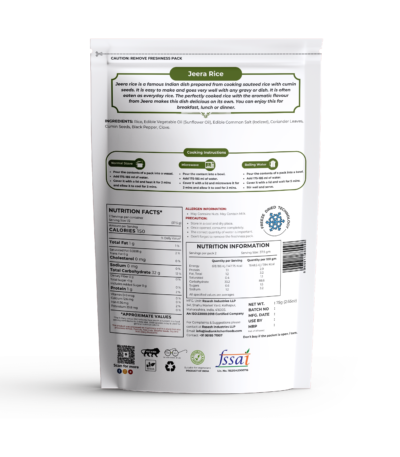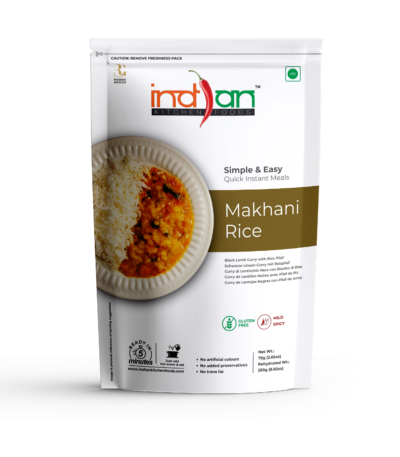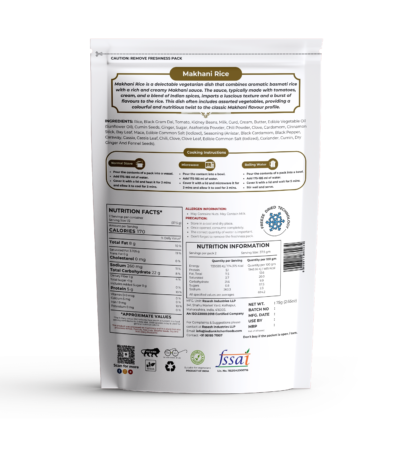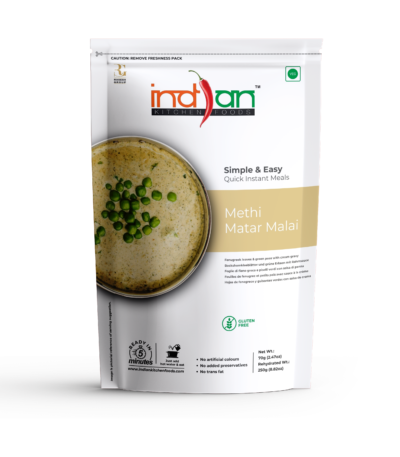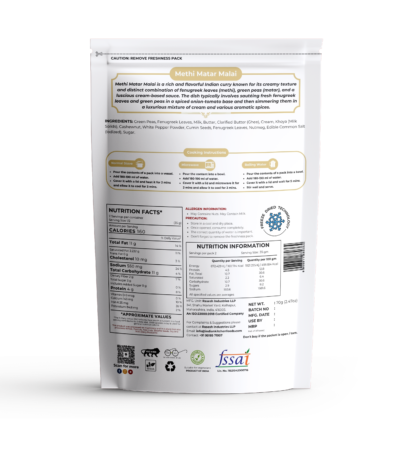Showing 25–36 of 78 results
Idli Sambhar (No onion,No Garlic/Jain)
From ₹140.00Idli Sambar is a beloved South Indian dish, combining soft, steamed rice-lentil cakes called idlis with a flavorful, tangy lentil stew known as sambar. Idlis have a light, fluffy texture, while sambar is packed with vegetables and spices. Together, they create a balanced, nutritious meal that’s both satisfying and delicious. Often accompanied by coconut chutney, this dish is enjoyed at any time of day.
Jain Pav Bhaji
From ₹175.00Jain Pav Bhaji is a variation of the classic pav bhaji, specially prepared without onions, garlic, or root vegetables to cater to Jain dietary preferences. It offers the same delicious, spiced vegetable curry flavor, served with soft, buttered pav, making it a flavorful and satisfying option for those following Jain principles.
Jeera Rice
From ₹145.00Jeera Rice is a popular Indian rice dish known for its aromatic flavors and simplicity. It is made by cooking basmati rice with cumin seeds (jeera) and other spices, resulting in a fragrant and flavorful side dish that complements a variety of main courses.
Jeera Rice (No Onion,No Garlic /Jain)
From ₹145.00Jeera Rice is a popular Indian rice dish known for its aromatic flavors and simplicity. It is made by cooking basmati rice with cumin seeds (jeera) and other spices, resulting in a fragrant and flavorful side dish that complements a variety of main courses.
Kadhi Pulao
From ₹170.00Kadhi pulao is a delicious rice dish where rice is cooked with a tangy, spiced yogurt-based curry (kadi), infused with flavors from chickpea flour and spices. It offers a perfect blend of savory and tangy flavors, often served with raita or pickle
Kadhi Pulao (No Onion,No Garlic /Jain)
From ₹170.00Kadhi pulao is a delicious rice dish where rice is cooked with a tangy, spiced yogurt-based curry (kadi), infused with flavors from chickpea flour and spices. It offers a perfect blend of savory and tangy flavors, often served with raita or pickle
Kolhapuri Misal
From ₹175.00Kolhapuri Misal is a renowned and spicy breakfast dish from Kolhapur, Maharashtra, celebrated for its intense flavors and unique texture blend. This iconic dish features sprouted lentils, a flavorful, spicy gravy, and crispy toppings, creating a deliciously satisfying meal with every bite.
Kolhapuri Misal (No onion,No Garlic/Jain)
From ₹175.00Kolhapuri Misal is a renowned and spicy breakfast dish from Kolhapur, Maharashtra, celebrated for its intense flavors and unique texture blend. This iconic dish features sprouted lentils, a flavorful, spicy gravy, and crispy toppings, creating a deliciously satisfying meal with every bite.
Makhani Rice
From ₹170.00Makhani rice is a rich and flavorful dish made by cooking rice in a creamy, buttery tomato-based sauce, often seasoned with aromatic spices like cumin, coriander, and garam masala. The dish is typically paired with vegetables or meat for added texture and depth of flavor. Known for its indulgent and mild taste, makhani rice is a comforting meal, often enjoyed with naan or raita.
Makhani Rice (No Onion,No Garlic /Jain)
From ₹170.00Makhani rice is a rich and flavorful dish made by cooking rice in a creamy, buttery tomato-based sauce, often seasoned with aromatic spices like cumin, coriander, and garam masala. The dish is typically paired with vegetables or meat for added texture and depth of flavor. Known for its indulgent and mild taste, makhani rice is a comforting meal, often enjoyed with naan or raita.
Methi Matar Malai
From ₹210.00Methi Matar Malai is a creamy North Indian dish made with fresh fenugreek leaves (methi), peas (matar), and a rich, mild gravy of cream and aromatic spices. The dish offers a delightful balance of slightly bitter fenugreek, sweet peas, and the richness of cream, typically served with roti or rice.
Methi Matar Malai (No Onion – No Garlic / Jain)
From ₹210.00Methi Matar Malai is a creamy North Indian dish made with fresh fenugreek leaves (methi), peas (matar), and a rich, mild gravy of cream and aromatic spices. The dish offers a delightful balance of slightly bitter fenugreek, sweet peas, and the richness of cream, typically served with roti or rice.
Online Sports Nutrition and Natural Dietetics.
Chances are there wasn't collaboration, communication, and checkpoints, there wasn't a process agreed upon or specified with the granularity required. It's content strategy gone awry right from the start. Forswearing the use of Lorem Ipsum wouldn't have helped, won't help now. It's like saying you're a bad designer, use less bold text, don't use italics in every other paragraph. True enough, but that's not all that it takes to get things back on track.
The villagers are out there with a vengeance to get that Frankenstein
You made all the required mock ups for commissioned layout, got all the approvals, built a tested code base or had them built, you decided on a content management system, got a license for it or adapted:
- The toppings you may chose for that TV dinner pizza slice when you forgot to shop for foods, the paint you may slap on your face to impress the new boss is your business.
- But what about your daily bread? Design comps, layouts, wireframes—will your clients accept that you go about things the facile way?
- Authorities in our business will tell in no uncertain terms that Lorem Ipsum is that huge, huge no no to forswear forever.
- Not so fast, I'd say, there are some redeeming factors in favor of greeking text, as its use is merely the symptom of a worse problem to take into consideration.
- Websites in professional use templating systems.
- Commercial publishing platforms and content management systems ensure that you can show different text, different data using the same template.
- When it's about controlling hundreds of articles, product pages for web shops, or user profiles in social networks, all of them potentially with different sizes, formats, rules for differing elements things can break, designs agreed upon can have unintended consequences and look much different than expected.
This is quite a problem to solve, but just doing without greeking text won't fix it. Using test items of real content and data in designs will help, but there's no guarantee that every oddity will be found and corrected. Do you want to be sure? Then a prototype or beta site with real content published from the real CMS is needed—but you’re not going that far until you go through an initial design cycle.











